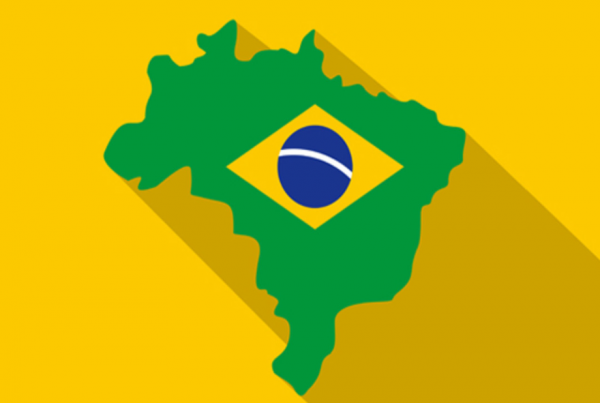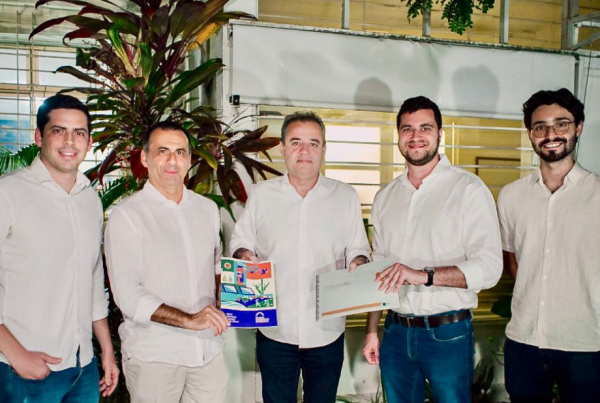Water is perhaps the planet’s main natural resource, fundamental to the existence of life on Earth. An essential substance for terrestrial biodiversity and for maintaining ecosystem functions, water is also indispensable for food production, health maintenance, hydroelectricity generation, industrial processes, waste and waste transportation, among others. On this March 22nd, World Water Day, we need to reflect on whether our production and consumption models contribute to the preservation of this precious resource.
Despite being an abundant and renewable resource, the volume of water available for human consumption represents a small portion of the total. While 70% of the earth’s surface is covered by water, only 2% of the volume is made up of fresh water, and only 0.3% is available for consumption.
About 1.5 billion people live in regions where the use of the resource exceeds its replacement capacity, possibly leading to its depletion. Estimates indicate that in the next decade the population living in countries with great pressure on water resources will exceed three billion. There are great chances that we will suffer a global water crisis in the future, both because of the way we exploit the resource and because of climate change.
The IPCC assessments show that global warming will impact many systems, including water resources, with changing precipitation patterns, melting snow and ice sheets, affecting the availability of water in quantity and quality. Consequently, there will be indirect impacts on various aspects of our lives, but especially on food production, since agriculture accounts for 70% of global water consumption.
The close relationship between climate and water tends to become increasingly unbalanced with global warming, and the impacts will occur through both excess and scarcity. On the one hand, the increase in the frequency and intensity of floods like those observed earlier this year in several regions makes it increasingly difficult to disprove the effects of climate change. On the other hand, water supply crises are also likely to grow, especially in regions that already suffer from this problem.
As if the global impacts were not enough, the attitudes at the local level do not collaborate to face the problem. The management of water resources plays a key role in ensuring water security and reconciling the various demands: domestic use, agriculture, industry, and hydroelectricity. However, what we observe is a disregard for basic principles related to the provision of water resources, such as the notion that there are priority areas that must be preserved for water production. The water crisis that has hit the state of São Paulo in the last decade is an obvious example, in which the advance of agriculture without respecting the vegetation on the river banks has seriously damaged the supply of the reservoirs.
When it comes to greenhouse gas (GHG) emissions, Brazil differs greatly from the international standard. This is largely because the Brazilian electricity matrix is predominantly based on hydroelectricity. On the other hand, the use of ethanol in transportation, replacing fossil fuels, also stands out in the country. A deeper analysis, however, shows us that the large-scale production of sugar cane to supply ethanol impacts water (as occurred in São Paulo), food (by replacing food production), and even climate security, since it displaces less profitable activities, such as cattle raising, to regions with forest cover and drives deforestation. It is therefore necessary to think about resource management in an integrated way, as is done with the Nexus approach, so that all these aspects are considered together.
Several media outlets have reported on the effects of the current crisis caused by the Covid-19 outbreak on air pollutant and GHG emissions. With China as the main example, studies show that the measures adopted to face the pandemic, such as restricting circulation and the consequent reduction in production, had immediate impacts on emissions.
A hasty, or ill-intentioned conclusion would tend to say that this crisis has a positive side. Definitely not! A statement like this resembles that used by those who argue that a war is good because it creates jobs and increases production. In either case, one cannot advocate solving one problem by causing another, even more so when it involves the loss of life, of basic subsistence conditions, and the psychological suffering to which a large part of the population is subjected.
However, this situation makes it explicit how harmful the prevailing development pattern is, and shows that it is urgent and possible for us to seek alternatives. It is evident that we need to review our economic, technological, political, and natural resource use models. This change will only occur to the extent that the population understands the relationship between society and the environment and becomes aware of the importance of preserving ecosystems. Although not as direct and immediate as in the case of Covid-19, the loss of life and economic impacts of climate change are likely to be much greater.
In some places people can already see the blue sky after a long time, due to the reduction in pollution. Images are also being shared of animals returning to occupy various spaces where their presence is normally threatened. When the population begins to return to the streets, they will probably find cleaner rivers, canals, and lakes, and the streets covered not with plastic, but with tree leaves. But will we have a real change or will we simply go back to the routine of degradation and disrespect for the environment in which we live?




